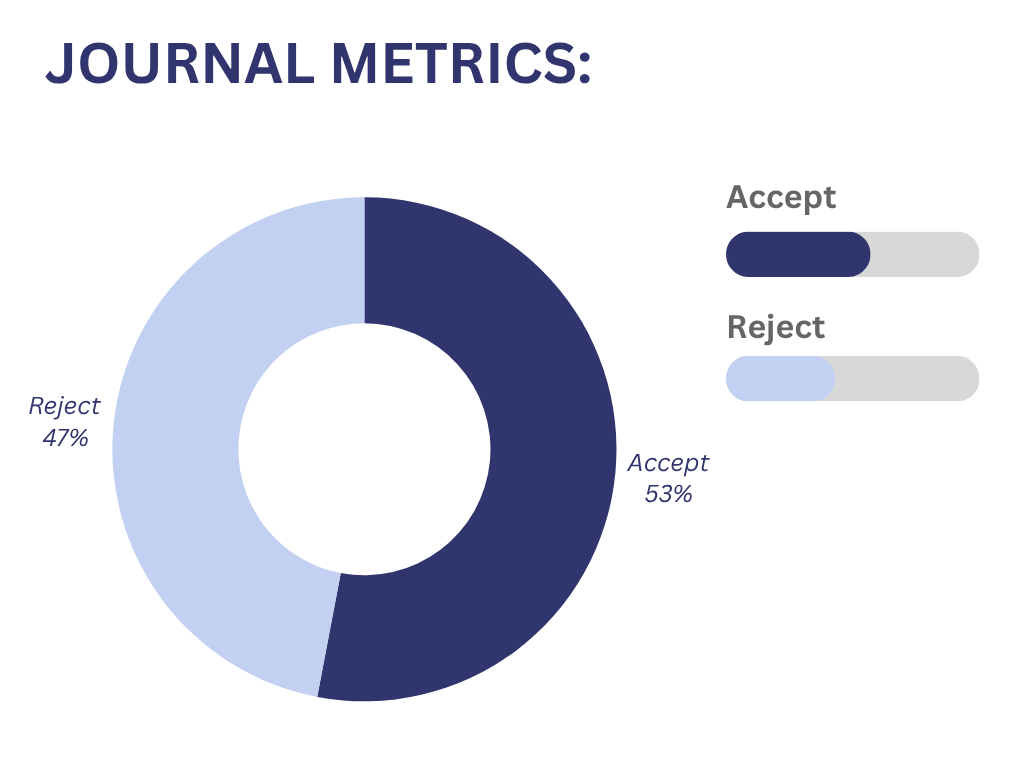Development and Computational Analysis of a Pump Hydro Storage System for Optimizing Electrical Grid Performance Using HOMER Energy Modelling Tool
Abstract
The purpose of this study is to propose a sustainable solution that can provide a reliable power supply to meet the energy demands of higher institutions in Nigeria, through the design and simulation of a pump storage hydroelectric power plant. The unreliable power supply in Nigeria has been a major challenge for most higher institutions, affecting research and productivity. The methodology involved data collection on energy consumption patterns, system design of the pump storage hydro-electric power model, simulation of the system using the Hybrid Optimization Model for Electric Renewables (HOMER) software, and optimization of the design to meet the energy demands of the polytechnic. The data collected included peak demand periods and energy consumption patterns for various facilities within the institution. The system design considered the installation of a pump storage hydro-electric power system that can generate and store electricity during off-peak hours for use during peak demand periods. A peak load of 4kW requirement and daily demand of 82kWh/day, with a load factor of 37%, volumetric flow rate of 0.032 m3/s, and reservoir height of 16m were considered for the model designed. The simulation result showed a positive Net Present Value (NPV) of $11,757.14, indicating a good future value of the project in present times with a Levelized cost of Energy of $0.0304 (N51/kWh) and an annual maintenance cost of $600. The simulation results from HOMER software indicate that the pump storage hydro-electric power model is a feasible solution for enhancing electricity supply in most Nigerian institutions.
Keywords:
Hydro storage, Hybrid optimization model for electric renewables, Electrical grid, Renewable energyReferences
- [1] Abu-Rayash, A., & Dincer, I. (2020). Analysis of the electricity demand trends amidst the COVID-19 coronavirus pandemic. Energy research & social science, 68, 101682. https://doi.org/10.1016/j.erss.2020.101682
- [2] Oyewole, S. (2016). Kidnapping for rituals: Article of faith and insecurity in Nigeria. Africology: The journal of pan african studies, 9(9), 35–52. https://B2n.ir/dq5291
- [3] Ibrahim, B., & Mukhtar, J. I. (2017). An analysis of the causes and consequences of kidnapping in Nigeria. African research review, 11(4), 134–143. https://www.ajol.info/index.php/afrrev/article/view/163979
- [4] Obileye, A. A., & George, K. (2021). Trends of kidnapping and hostage taking in 21st century Nigeria: A reflective discourse. CJSMS, 6(1), 114–163. https://B2n.ir/ss2175
- [5] Motjoadi, V., Adetunji, K. E., & Joseph, M. K. (2020). Planning of a sustainable microgrid system using homer software. 2020 conference on information communications technology and society (ICTAS) (pp. 1–5). IEEE. https://doi.org/10.1109/ICTAS47918.2020.233986
- [6] Razmjoo, A., Kaigutha, L. G., Rad, M. A. V., Marzband, M., Davarpanah, A., & Denai, M. (2021). A Technical analysis investigating energy sustainability utilizing reliable renewable energy sources to reduce CO2 emissions in a high potential area. Renewable energy, 164, 46–57. https://doi.org/10.1016/j.renene.2020.09.042
- [7] Mousavi, S. A., Mehrpooya, M., Rad, M. A. V., & Jahangir, M. H. (2021). A new decision-making process by integration of exergy analysis and techno-economic optimization tool for the evaluation of hybrid renewable systems. Sustainable energy technologies and assessments, 45, 101196. https://doi.org/10.1016/j.seta.2021.101196
- [8] Ammari, C., Belatrache, D., Touhami, B., & Makhloufi, S. (2022). Sizing, optimization, control and energy management of hybrid renewable energy system—A review. Energy and built environment, 3(4), 399–411. https://doi.org/10.1016/j.enbenv.2021.04.002
- [9] Dodo, U. A., Ashigwuike, E. C., Gafai, N. B., Eronu, E. M., Sada, A. Y., & Dodo, M. A. (2020). Optimization of an autonomous hybrid power system for an academic institution. European journal of engineering and technology research, 5(10), 1160–1167. ttp://dx.doi.org/10.24018/ejers.2020.5.10.2157
- [10] Arévalo, P., Eras-Almeida, A. A., Cano, A., Jurado, F., & Egido-Aguilera, M. A. (2022). Planning of electrical energy for the Galapagos Islands using different renewable energy technologies. Electric power systems research, 203, 107660. https://doi.org/10.1016/j.epsr.2021.107660
- [11] Mulenga, E., Kabanshi, A., Mupeta, H., Ndiaye, M., Nyirenda, E., & Mulenga, K. (2023). Techno-economic analysis of off-grid PV-Diesel power generation system for rural electrification: A case study of Chilubi district in Zambia. Renewable energy, 203, 601–611. https://doi.org/10.1016/j.renene.2022.12.112
- [12] Elkadeem, M. R., Younes, A., Sharshir, S. W., Campana, P. E., & Wang, S. (2021). Sustainable siting and design optimization of hybrid renewable energy system: A geospatial multi-criteria analysis. Applied energy, 295, 117071. https://doi.org/10.1016/j.apenergy.2021.117071
- [13] Kamal, M. M., Asharaf, I., & Fernandez, E. (2022). Optimal renewable integrated rural energy planning for sustainable energy development. Sustainable energy technologies and assessments, 53, 102581. https://doi.org/10.1016/j.seta.2022.102581
- [14] Ellabban, O., & Alassi, A. (2021). Optimal hybrid microgrid sizing framework for the mining industry with three case studies from Australia. IET renewable power generation, 15(2), 409–423. https://doi.org/10.1049/rpg2.12038
- [15] Bansal, A. K. (2022). Sizing and forecasting techniques in photovoltaic-wind based hybrid renewable energy system: A review. Journal of cleaner production, 369, 133376. https://doi.org/10.1016/j.jclepro.2022.133376
- [16] Khan, A. A., Minai, A. F., Pachauri, R. K., & Malik, H. (2022). Optimal sizing, control, and management strategies for hybrid renewable energy systems: A comprehensive review. Energies, 15(17), 6249. https://doi.org/10.3390/en15176249
- [17] Zebra, E. I. C., van der Windt, H. J., Nhumaio, G., & Faaij, A. P. C. (2021). A review of hybrid renewable energy systems in mini-grids for off-grid electrification in developing countries. Renewable and sustainable energy reviews, 144, 111036. https://doi.org/10.1016/j.rser.2021.111036
- [18] Routray, S. K., Javali, A., Gopal, D., Sharma, L., KP, S., & Sahoo, A. (2021). IoT-based microgrids for rural electrification. 2021 fifth international conference on I-SMAC (IoT in social, mobile, analytics and cloud)(I-SMAC) (pp. 275–279). IEEE. https://doi.org/10.1109/I-SMAC52330.2021.9640770
- [19] Suman, G. K., Guerrero, J. M., & Roy, O. P. (2021). Optimisation of solar/wind/bio-generator/diesel/battery based microgrids for rural areas: A PSO-GWO approach. Sustainable cities and society, 67, 102723. https://doi.org/10.1016/j.scs.2021.102723
- [20] Zhang, L., Li, S., Nie, Q., & Hu, Y. (2022). A two-stage benefit optimization and multi-participant benefit-sharing strategy for hybrid renewable energy systems in rural areas under carbon trading. Renewable energy, 189, 744–761. https://doi.org/10.1016/j.renene.2022.03.048
- [21] Deele, L. B., Ozuomba, S., & Okpura, N. (2019). Design and parametric analysis of a stand-alone solar-hydro power plant with pumped water storage technology. International journal of engineering & technology (IJET), 4(1), 9-23. 10.5281/zenodo.3534415



